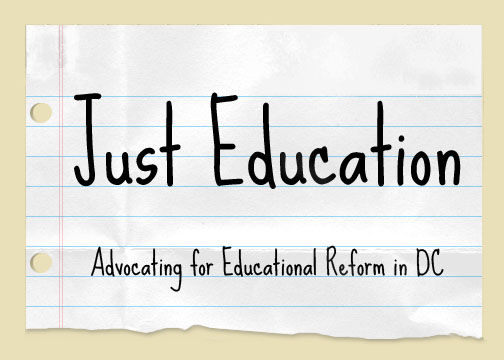By: Matt Buccelli
Last Wednesday night, I went with several other tutors and coordinators to one of DCPS chancellor Michelle Rhee's monthly community forums. This one took place at Kimball Elementary School in Ward 7, and the was centered around the district’s attempts to develop an action plan for improving DCPS high schools.
After an introduction by Chancellor Rhee, one of her deputies detailed how and why DC is moving forward with its plan to improve secondary schools. Rhee’s deputy said that DCPS is currently engaged in a three-phase plan for secondary school transformation --- after coming to agreement on expectations for high school students and tactics for moving forward, the school district will examine student performance and best practices from other urban school districts, and then create a final plan for meeting its expectations. In other words, DCPS’ “Vision for DCPS Secondary Schools,” as the forum was billed, is in its infancy.
The lady representing the district pointed out repeatedly that while DCPS would like to see more of its students go to college, the plan for improving secondary schools is designed to prepare high schoolers for “long-term success in the labor market.” That preparation, she clarified, can come in the form of a college degree, or simply in terms of giving students the basic skills and resources in high school so that they can become good citizens and productive members of society. But her PowerPoint presentation did contain two seemingly obvious but nonetheless telling graphs: one demonstrating significantly higher average lifetime incomes attributed to higher degrees of educational attainment, another connecting higher educational attainment to lower unemployment. Preparing students on the district-wide level for long-term success, then, necessarily involves sending more kids to college. But the DCPS “working draft” does also focus heavily on youth development, and includes as goals that students “serve and volunteer in school or community,” and “explore personal interests, aptitudes and skills.” So it’s not only a college thing --- that’s just a large part of the equation.
After the DCPS presentation, a panel of DCPS principals and other district officials took questions from community attendees. The questions stressed the need for more guidance counselors, better resources in some schools, and effective implementation of the draft plan. One question that I thought was particularly pertinent asked why DCPS, in the questioner’s view, doesn’t work more effectively with various community organizations throughout DC. Obviously DC Reads and DCPS work very collaboratively. But the questioner seemed discouraged by DCPS’ lack of engagement with non-educational community organizations. If high schools are going to encourage their students to “serve and volunteer in school or community,” that would seem to be an essential link.
In the van back to Georgetown from the event, the consensus among the four other tutors and coordinators I was with seemed to be that the DCPS plan represented good vision and forward thinking on the part of the school district, but lacked specifics for implementation. I would have to agree. I was encouraged by the fact that this is hopefully going to be an ongoing initiative. It seems that in the climate of school reform, high schoolers get sort of lost in the shuffle --- I was actually surprised to see that while students under No Child Left Behind are required to be tested once every year from third grade through eighth grade, the law only demands one high school evaluation. So DCPS gets points for understanding that high school represents the critical final stage in a child’s development that cannot be ignored.
The working draft is fairly detailed, which is also good sign. The emphasis on graduating good citizens was also commendable. But with the plan in its early stages, there are a lot of blanks that need to be filled in as far as how the district will follow through on goals for its high schools that should also get credit for being fairly ambitious. Will DCPS develop stronger relationships with community organizations to insure that students have the opportunity to pursue their extra-curricular goals? More questions remain: is this plan going to get the significant time and attention it will need to be successful? Or will it drop down the list of Chancellor Rhee’s priorities?
I think there’s a lot of potential in this latest effort by DCPS, but as with most things there is going to need to be effective follow-through. If anyone else attended the forum, what did you think?

No comments:
Post a Comment